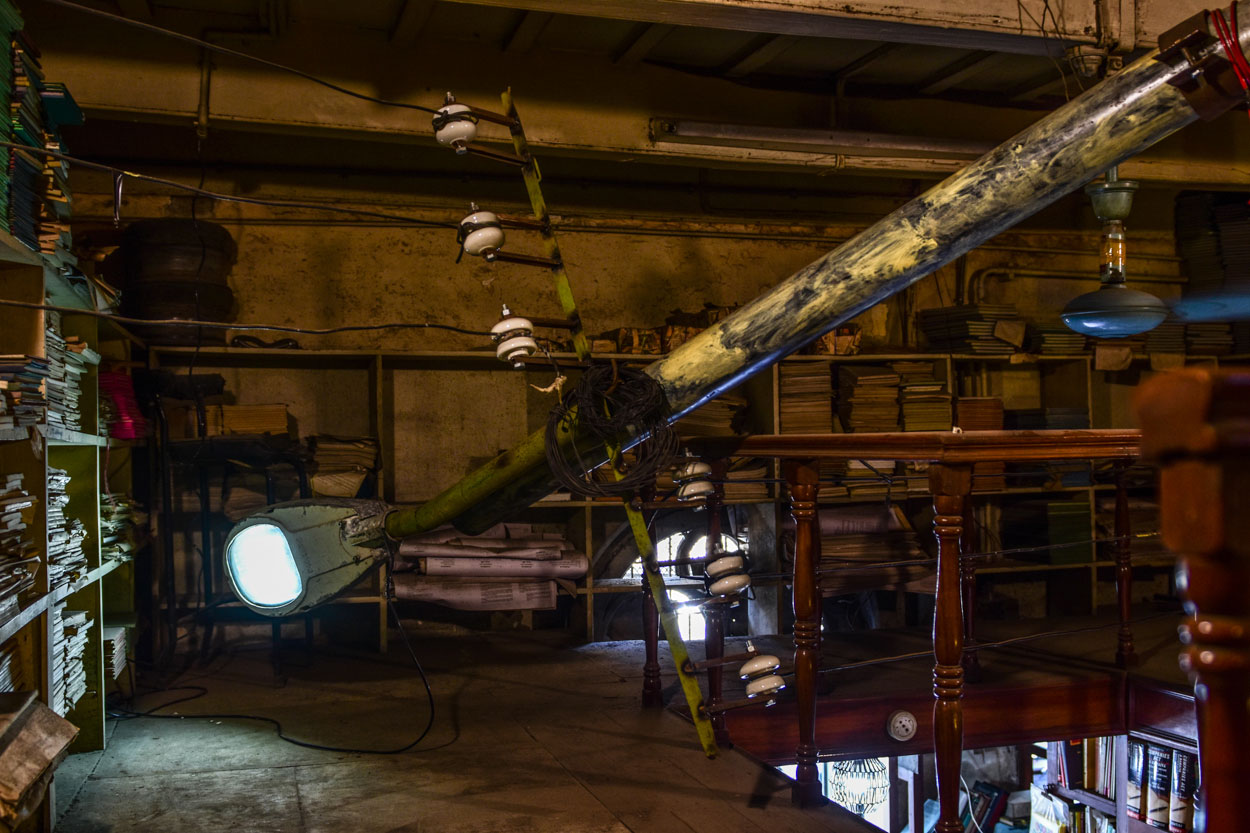Huma Mulji
Born in 1970 in Karachi (Pakistan)
Lives and works in Bristol (UK)
Huma Mulji works with sculpture, photography, drawing and painting, creating material juxtapositions which are attentive to the absurd and broadly address notions of failure and neglect, endurance and transformation. The city, the everyday and the overlooked all serve as subjects in these deliberately awkward artworks, which are materially playful, spatially evocative and imbue an anti-heroism, playing out ironically, or sometimes comically, in her works. Mulji’s participation in recent exhibitions includes: “A Country of Last Things” (solo), Koel Gallery, Karachi, 2016; “The Great Game”, Iran Pavilion, Venice Biennale, 2015; “Burning Down the House”, 10th Gwangju Biennale, South Korea; “Extra|Ordinary”, Dubai, 2013; “Twilight”, a solo show at Project 88, Mumbai, India, 2011; “The Rising Tide”, Mohatta Palace Museum, Karachi, 2010; “Where Three Dreams Cross”, Whitechapel Gallery, London, UK, 2010; “Crystal Palace and Other Follies” (solo), Rohtas Gallery Lahore, 2010; “The Empire Strikes Back”, The Saatchi Gallery, 2010; and “Hanging Fire: Contemporary Art from Pakistan”, at Asia Society, NY, 2009. Mulji was a recipient of the Abraaj Group Art Prize 2013. She was Associate Professor at the School of Visual Arts, BNU, Lahore from 2002-2015 and is currently Visiting Artist 2015-17 at Goldsmiths College, London, visiting tutor BFA program at University of West of England, Bristol, and Lecturer, BA Hons. Fine Art at Plymouth College of Art, UK.
Mulji writes of her site-specific work for KB17: “The installation Ode to a Lamppost that Got Accidentally Destroyed in the Enthusiastic Widening of Canal Bank Road shifts from buoyant absurdity to a paradoxical and monumental decline, simultaneously quiet and disconcertingly momentous. The fallen lamppost flickers, gasping for life, refusing to die. The site of Pioneer Book House, equally worn, gives sanctuary but also illuminates the enormity of the moment, the slow passing of time. The site and the installation within collaborate to form a complex palimpsest of Karachi’s simultaneous and perpetual growth and decline.”

Ode to a Lampost that Got Accidentally Destroyed in the Enthusiastic Widening of Canal Bank Road, 2011-2017.
Site-specific installation
Lamppost, electric cables, LED lights and mixed media
Dimensions variable
Project supported by Plymouth College of Art

